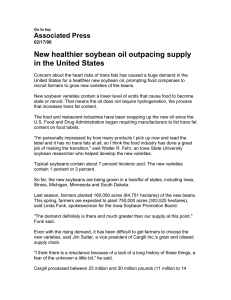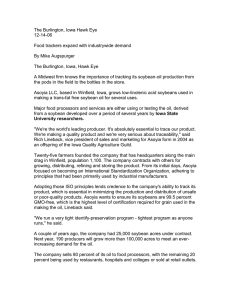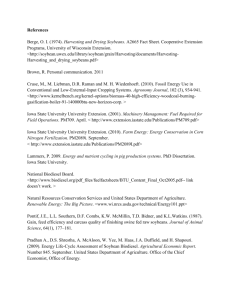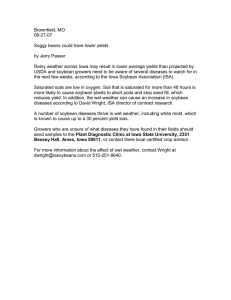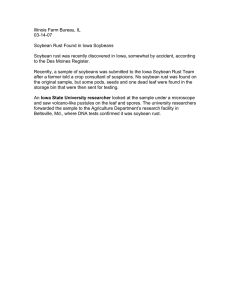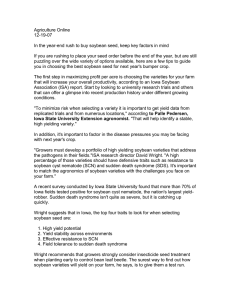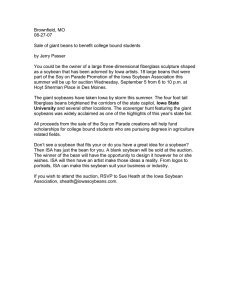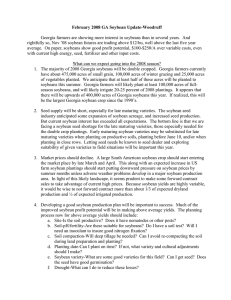Food industry eating up new soybean oil Associated Press
advertisement
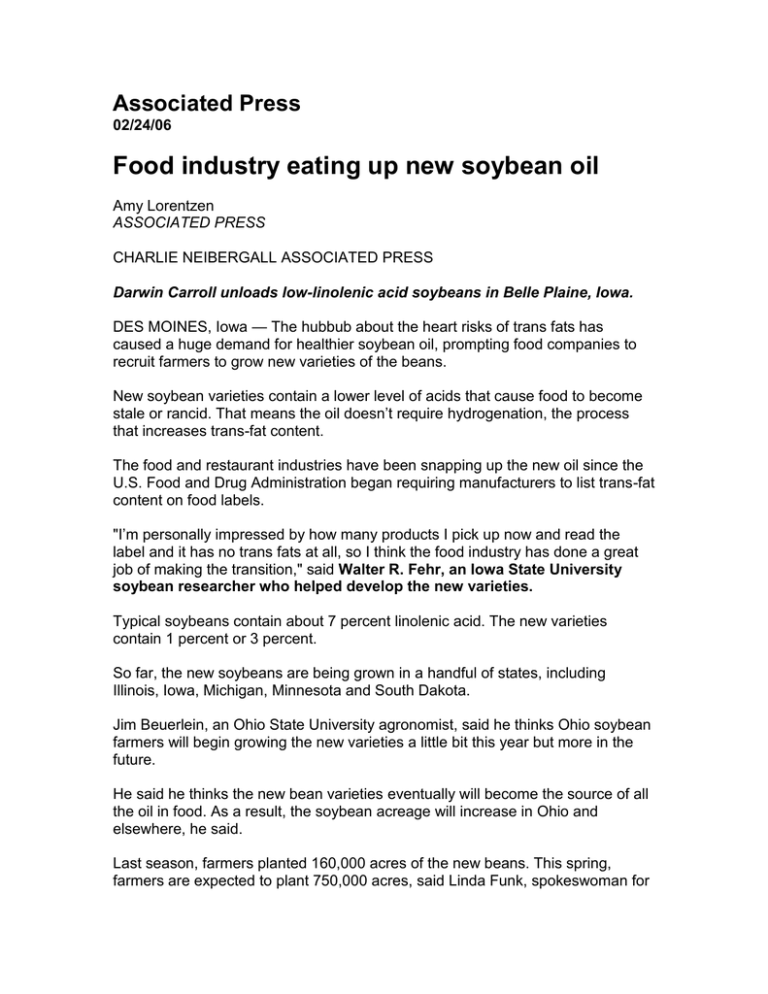
Associated Press 02/24/06 Food industry eating up new soybean oil Amy Lorentzen ASSOCIATED PRESS CHARLIE NEIBERGALL ASSOCIATED PRESS Darwin Carroll unloads low-linolenic acid soybeans in Belle Plaine, Iowa. DES MOINES, Iowa — The hubbub about the heart risks of trans fats has caused a huge demand for healthier soybean oil, prompting food companies to recruit farmers to grow new varieties of the beans. New soybean varieties contain a lower level of acids that cause food to become stale or rancid. That means the oil doesn’t require hydrogenation, the process that increases trans-fat content. The food and restaurant industries have been snapping up the new oil since the U.S. Food and Drug Administration began requiring manufacturers to list trans-fat content on food labels. "I’m personally impressed by how many products I pick up now and read the label and it has no trans fats at all, so I think the food industry has done a great job of making the transition," said Walter R. Fehr, an Iowa State University soybean researcher who helped develop the new varieties. Typical soybeans contain about 7 percent linolenic acid. The new varieties contain 1 percent or 3 percent. So far, the new soybeans are being grown in a handful of states, including Illinois, Iowa, Michigan, Minnesota and South Dakota. Jim Beuerlein, an Ohio State University agronomist, said he thinks Ohio soybean farmers will begin growing the new varieties a little bit this year but more in the future. He said he thinks the new bean varieties eventually will become the source of all the oil in food. As a result, the soybean acreage will increase in Ohio and elsewhere, he said. Last season, farmers planted 160,000 acres of the new beans. This spring, farmers are expected to plant 750,000 acres, said Linda Funk, spokeswoman for the Iowa Soybean Promotion Board. "The demand definitely is there and much greater than our supply at this point." Even with the rising demand, it’s been difficult to get farmers to choose the new varieties, said Jim Sutter, a vice president of Cargill Inc.’s grain and oilseed supply chain. "I think there is a reluctance because of . . . a fear of the unknown a little bit," Sutter said. Cargill processed between 25 million and 30 million pounds of the low-linolenic acid soybeans last year. Among the companies buying the new soybean oil is Kellogg Co., which will use it in its Town House and Club crackers. Dispatch reporter Monique Curet contributed to this story.
